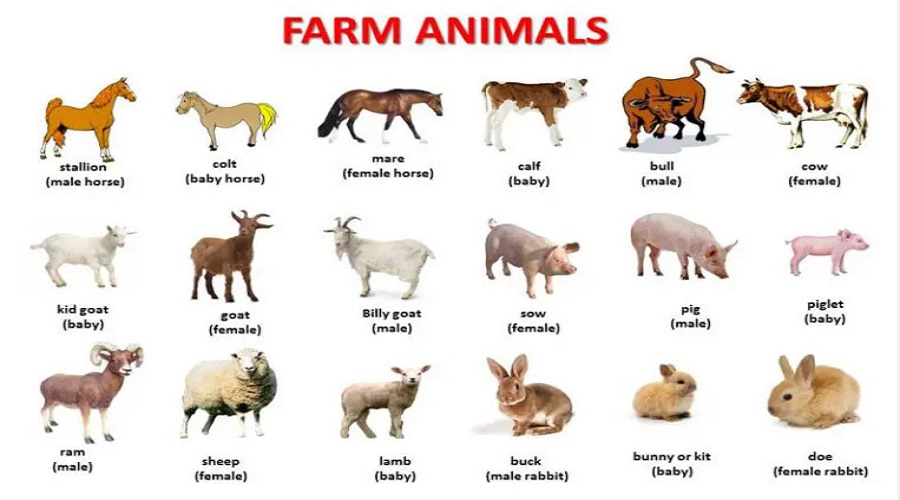Table of Contents
Animals that are bred and maintained for the sole purpose of agricultural productivity are referred to as farm animals, which encompass a diverse range of species including cows, chickens, pigs, geese, and numerous others.
Farm Animals
Farm animals refer to animals reared on farms primarily for the purpose of producing meat, dairy products or aiding farmers in carrying out various agricultural activities.
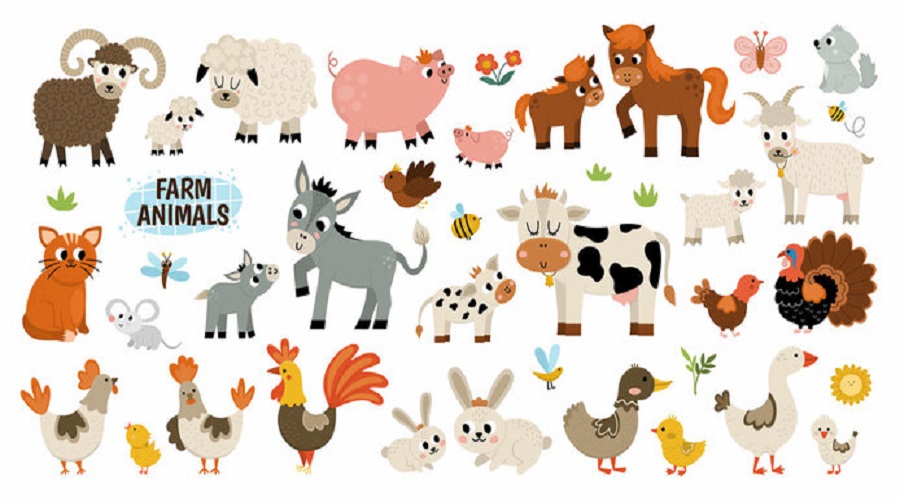
farm animals
What are farm animals?
Livestock refers to animals that are raised or kept primarily for consumption, income generation, and to assist with farm operations, whereas wild animals reside in natural habitats such as forests and jungles. Farm animals live in close proximity to humans.
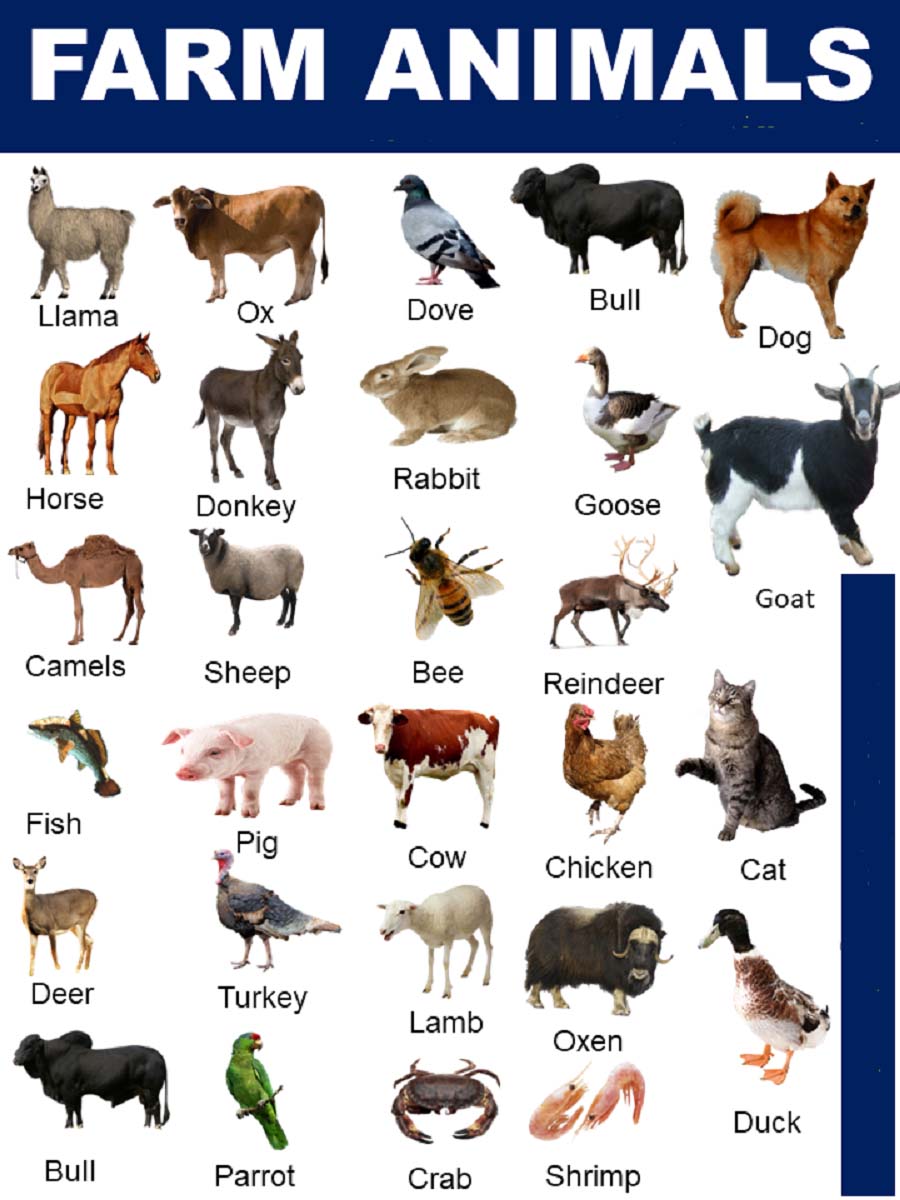
what are farm animals
Examples of Farm Animals
Farm animals, which consist of species that are kept or raised on agricultural lands, are a crucial component of the global food system. Among the commonly kept farm animals are goats, sheep, cattle, oxen, camels, buffaloes, horses, donkeys, mules, pigs, chickens, turkeys, ducks, and geese. In addition to these larger livestock, certain species categorized as micro-livestock, such as rabbits, cane rats, and guinea pigs, are also reared on farms for their usefulness in supplying food, fiber, and other by-products.
Classes of Farm Animals
Categorization of farm animals, which is dependent on their digestive system, is possible and commonly done. Said classes encompass monogastric, ruminant, and pseudo-ruminant creatures.
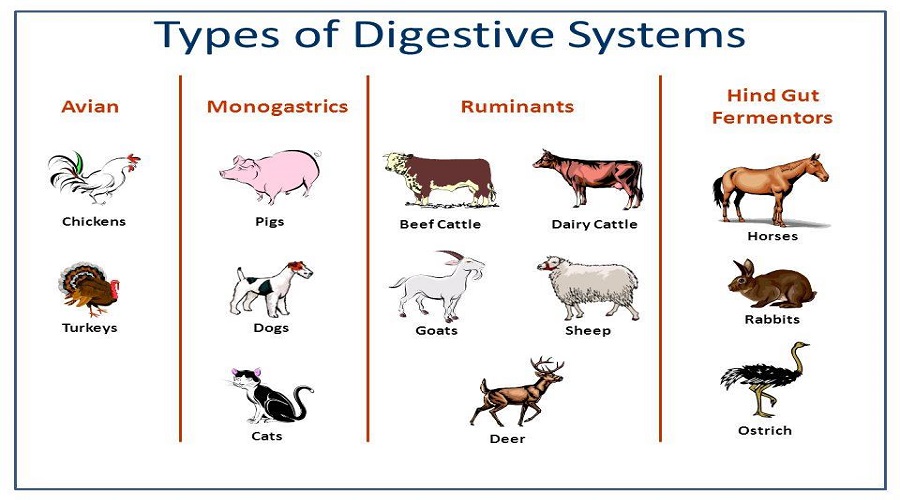
Classes of Farm Animals
Monogastric Animals (Simple Stomach)
Examples of monogastric animals include:
- All poultry species
- Pigs
- Horses
- Donkey
- Rabbits
- Cane rats
- Guinea pigs
Ruminants Animals
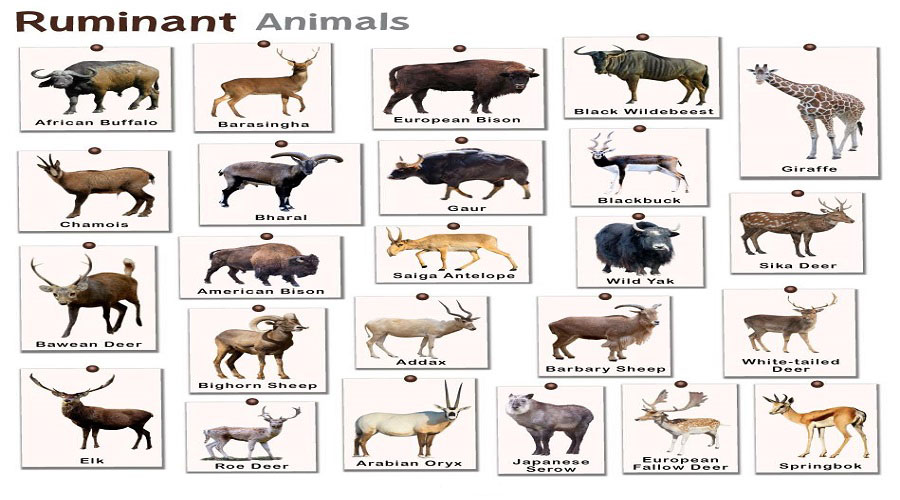
Ruminants Animals
Examples of ruminants include:
- Goats
- Sheep
- Cattle
- Buffalos
Pseudo-ruminant Animals
Examples of pseudo-ruminants include:
- Camels
- Alpacas
There are many reasons attributed to raising farm animals. These include:
- Meat production
- Milk production
- Egg production
- Companionship
- Income generation
General Characteristics of Farm Animals
Some of the qualities or characteristics of farm animals are as follows:
- Farm animals flourish in enclosed or domestic spaces, where they are commonly bred or housed. Despite such confinement, they continue to maintain their health and develop satisfactorily within these conditions, as long as the farm premises are conducive and sufficient nourishment and hydration are consistently provided.
- Due to their familiarity with human and other farm animal cohabitation, domestic animals have become accustomed to sharing homes. This is a primary reason for their classification as such. Many of these animals tend to shed excessively, hence, investing in pet hair lint rollers is a practical suggestion to maintain cleanliness of clothing.
- They coexist quite peacefully with both animals of the same species and different species.
- They are calm and friendly in nature and behavior except they are agitated or threatened or sense a threat.
- The domestic traits of these animals are passed on to their young. These animals once roamed in the wild thousands of years ago but were eventually captured by humans. Over time, as they have lived alongside humans, these animals have gradually lost their wild tendencies.
- In general, these creatures are awake and more active during the day, indicating diurnal behavior. However, there are a few exceptions that exhibit both diurnal and nocturnal tendencies, suggesting increased activity during nighttime hours.
Always remember that all animals on farms are regarded as farm animals or livestock animals.
